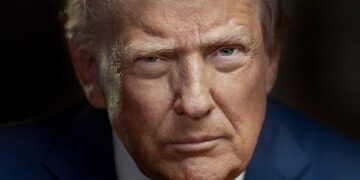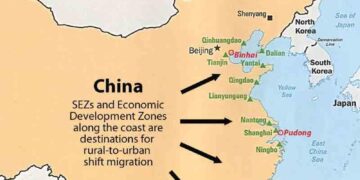Sudan’s Military Regains Presidential Palace Amid Intensifying Conflict
In a decisive development within Sudan’s protracted conflict, the national armed forces have reclaimed control over the presidential palace in Khartoum, a critical seat of government authority. This event unfolds against a backdrop of escalating clashes between competing factions that have destabilized the country for months. The recapture of this emblematic location not only signifies a strategic military achievement but also signals potential shifts in Sudan’s political trajectory and prospects for peace.
Military Victory in Khartoum: A Turning Point in Sudan’s Struggle
The Sudanese army’s successful operation to retake the presidential palace followed weeks of fierce combat with rival groups vying for dominance over the capital. Witnesses reported intense exchanges of gunfire and explosions during the offensive, highlighting ongoing volatility across Khartoum. This victory is more than symbolic; it represents an attempt by military forces to reassert control amid widespread disorder.
The ramifications extend beyond immediate battlefield gains. Experts warn that this shift could alter power balances within Sudan and influence regional stability throughout Northeast Africa. Key consequences anticipated include:
- Reconfiguration of internal political alliances and rivalries
- Deterioration or improvement in humanitarian conditions depending on ensuing governance
- An increase in international diplomatic engagement or sanctions based on evolving circumstances
Regional governments are closely monitoring these developments, aware that changes within Sudan may reverberate across neighboring countries already grappling with their own security challenges.
Political Repercussions and Civil Stability Challenges Post-Recapture
The army’s consolidation over pivotal institutions like the presidential palace marks a critical juncture with complex implications for governance structures and civilian life. As military authorities strengthen their grip, several scenarios emerge:
- Centralization of Power: Military leadership may further marginalize civilian political actors, potentially leading to authoritarian rule.
- Fragmented Opposition: Competing factions might splinter further as they contest diminished influence, exacerbating polarization.
- Diplomatic Shifts: Foreign relations could pivot significantly depending on how global powers respond to increased military dominance—affecting aid flows and economic partnerships.
Civil society faces heightened risks amid these changes. Activists who previously mobilized against military rule now confront intensified threats including repression and restricted freedoms. Reports indicate growing fears among humanitarian workers operating under precarious conditions.
| Key Factors Affecting Stability | Likely Outcomes |
|---|---|
| Military Control Intensity | Eruption of civil unrest due to perceived authoritarianism. |
| Civic Sentiment Polarization | Divergence between pro-military supporters and opposition activists deepens societal divides. |
| Global Diplomatic Pressure | Mediation efforts may either empower peaceful dialogue or inflame tensions depending on approach effectiveness. |
A Framework for International Engagement & Humanitarian Support Amid Crisis
The recent seizure underscores an urgent need for recalibrated international strategies combining diplomacy with robust humanitarian assistance tailored to address both immediate needs and root causes fueling conflict escalation. Lessons from other African conflicts highlight how coordinated responses can mitigate broader regional destabilization risks.
- Diplomatic Mediation Enhancement: Strengthening collaboration among African Union members, UN agencies, and influential states to facilitate inclusive negotiations between warring parties;
- Sustained Humanitarian Aid Delivery: Scaling up support through trusted international organizations ensuring access to food, clean water, shelter, healthcare services;
- Civil Society Empowerment:Bolstering local NGOs’ capacity enables community-driven relief efforts fostering resilience;
- < strong >Peacekeeping Deployment :Considering targeted peacekeeping missions aimed at protecting civilians while stabilizing volatile zones .
< th style = "text-align:left;" >Strategic Initiatives< / th >< th style = "text-align:left;" >Objectives< / th >
< /thead >< td >Food Security & Water Sanitation Programs< / td >< td >Combat malnutrition; guarantee safe drinking water supply amidst disrupted infrastructure.< / td > < td >Healthcare Access Expansion< / td >< td >Deliver essential medical treatment including mental health services addressing trauma caused by conflict.< / td > < td >Education & Vocational Training Schemes< / td >< td >Equip displaced populations—especially youth—with skills facilitating reintegration into society post-conflict.< / td > . . .. . . . . . . . . . . . . . . . . . . . . . . . . . . . . . . . . . . . . . . . $ $ $ $ $ $ $ $ $ $ $ $ $ $ $ $ $ $ $ $ - - - - - - - - - - - - - - - - - - - -
A transparent framework emphasizing accountability will be vital to maximize aid effectiveness while laying foundations conducive toward sustainable peacebuilding efforts across Sudan’s fractured landscape.
The Road Ahead: Navigating Uncertainty After Military Gains
This milestone—the recapturing of Khartoum’s presidential palace—marks both hope and uncertainty as Sudan stands at crossroads amid its enduring crisis. While armed forces regain foothold amidst rising tensions, global observers maintain vigilant watch over unfolding events . This moment demands careful navigation by all stakeholders — from government officials striving toward stability,to citizens yearning for peace after years marked by upheaval.The resilience demonstrated daily by ordinary Sudanese remains central as they seek pathways out of turmoil toward renewed governance structures capable of delivering security,and prosperity alike . Continued updates will be crucial as this pivotal chapter evolves within one Africa’s most geopolitically significant nations .















